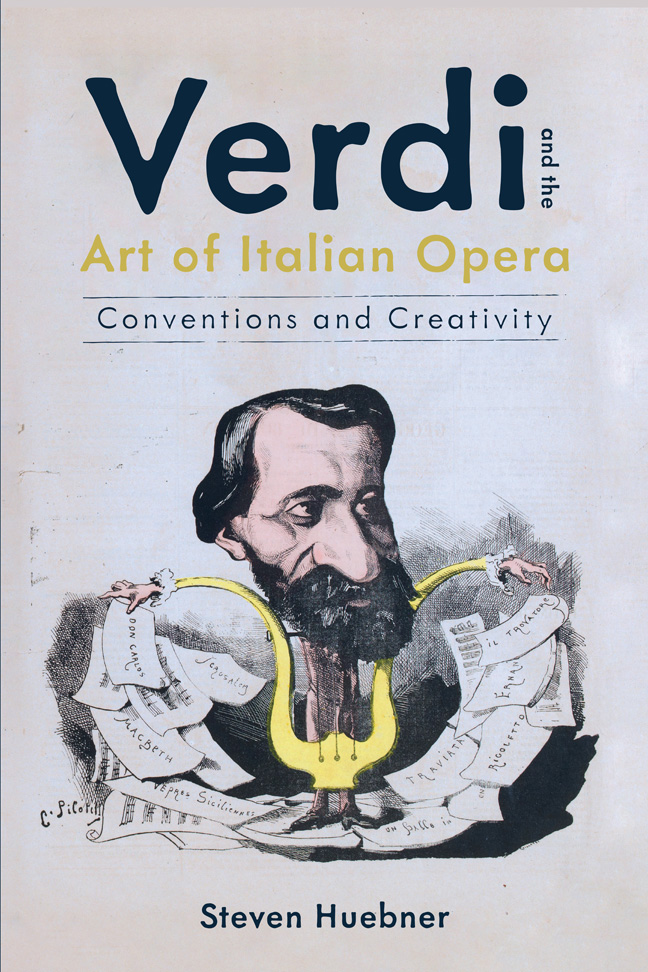1 - Versification and Prosody
Published online by Cambridge University Press: 22 February 2024
Summary
To most operagoers, it goes without saying that plot contributes significantly to molding the musicodramatic character of Verdi's operas—the arrival of someone, the combination of different voices, the unfolding of events. Fewer listeners recognize that music drama is also shaped by the properties of Italian poetry itself, which not only define the limits of the musical number—il pezzo chiuso—but also shape its internal organization. This structuring function melds closely with Verdi's compositional practice until Aida and in good measure also in Otello and Falstaff.
The Italian poets whom he used had to adapt their practice to the literary genre of the libretto. But even the most practiced hands did not always satisfy Verdi's demands, as happened with the poet and journalist Antonio Somma at the time of the Shakespearean project Re Lear (which never saw the light of day) or Un ballo in maschera. Verdi's correspondence with Somma often takes a didactic turn, revealing the frustrations of a composer with successive drafts produced by his poet. During the genesis of Re Lear, for example, Verdi wrote to Somma:
I tell you that the form lends itself poorly to music. No one privileges novelty of form more than I do, but novelty should always agree with music. It is true that almost anything can be set to music, but not everything produces a good effect. To make music, it is essential to have [poetic] stanzas that allow cantabili, stanzas that bring the voices together, and stanzas that yield larghi, allegri, etc… . all of it alternating so that nothing becomes cold or monotonous.
Effect
This letter gives a good sense of Verdi's perspective on text-music relationships during the late 1840s. A quest for novelty was a recurring theme, but that novelty was almost always framed by recognition of tradition. Advocacy for decisions that “always agree with the music” implicitly seems to suggest that there are certain immutable principles that underpin all good operatic music. Conservative polemics usually present the status quo as the only way not to betray fundamental principles of art. But in referring to the construct of “effect” in his letter to Somma—an expression and concept that appears many times in his correspondence—Verdi articulated another perspective.
- Type
- Chapter
- Information
- Verdi and the Art of Italian OperaConventions and Creativity, pp. 9 - 69Publisher: Boydell & BrewerPrint publication year: 2023



